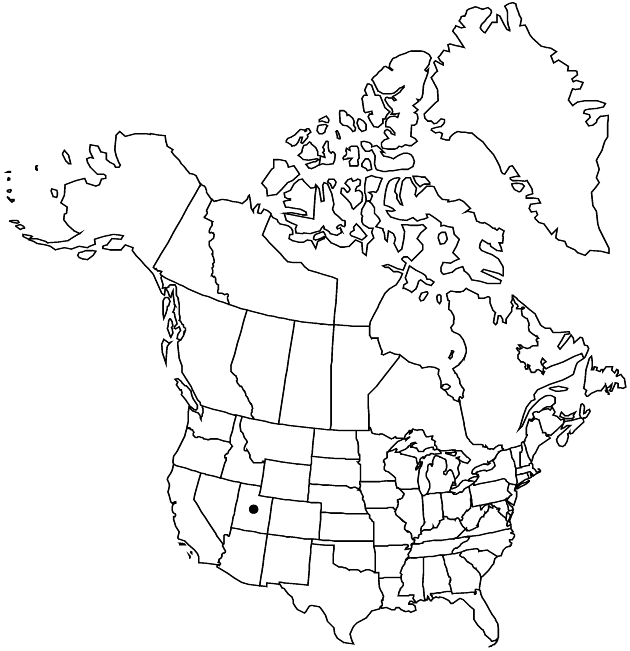Difference between revisions of "Xylorhiza cronquistii"
Brittonia 33: 302, fig. 8. 1981.
FNA>Volume Importer |
FNA>Volume Importer |
||
| Line 12: | Line 12: | ||
|name=Machaeranthera cronquistii | |name=Machaeranthera cronquistii | ||
|authority=(S. L. Welsh & N. D. Atwood) Cronquist | |authority=(S. L. Welsh & N. D. Atwood) Cronquist | ||
| + | |rank=species | ||
}} | }} | ||
|hierarchy=Asteraceae;Asteraceae tribe Astereae;Xylorhiza;Xylorhiza cronquistii | |hierarchy=Asteraceae;Asteraceae tribe Astereae;Xylorhiza;Xylorhiza cronquistii | ||
| Line 37: | Line 38: | ||
-->{{#Taxon: | -->{{#Taxon: | ||
name=Xylorhiza cronquistii | name=Xylorhiza cronquistii | ||
| − | |||
|authority=S. L. Welsh & N. D. Atwood | |authority=S. L. Welsh & N. D. Atwood | ||
|rank=species | |rank=species | ||
| Line 52: | Line 52: | ||
|publication year=1981 | |publication year=1981 | ||
|special status= | |special status= | ||
| − | |source xml=https://jpend@bitbucket.org/aafc-mbb/fna-data-curation.git/src/ | + | |source xml=https://jpend@bitbucket.org/aafc-mbb/fna-data-curation.git/src/eaa6e58056e40c9ef614d8f47aea294977a1a5e9/coarse_grained_fna_xml/V19-20-21/V20_934.xml |
|tribe=Asteraceae tribe Astereae | |tribe=Asteraceae tribe Astereae | ||
|genus=Xylorhiza | |genus=Xylorhiza | ||
Revision as of 19:31, 16 December 2019
Subshrubs, ca. 30 cm. Stems branched mostly in proximal 3/4, sparsely villous and stipitate-glandular to subglabrous. Leaf blades linear-lanceolate to narrowly oblanceolate, 2.5–6 mm wide, bases attenuate, not clasping, margins flat, usually shallowly spinulose-toothed, sometimes entire, faces sparsely villous. Peduncles 5–10 cm. Involucres 10–12 × 13–18 mm. Ray florets 13–17; corollas white. Style-branch appendages ± equal or slightly shorter than stigmatic lines.
Phenology: Flowering Jun–Jul.
Habitat: Gray sand of the Kaiparowits Formation
Elevation: 1900–2100 m
Discussion
Of conservation concern.
Xylorhiza cronquistii grows in Kane County. S. L. Welsh et al. (2003) noted that it is “more or less intermediate in morphologic features between X. confertifolia and X. tortifolia var. imberbis; it occurs on habitats intermediate between the two parental types and is at the approximate summit of the distribution of the latter.”
Selected References
None.
